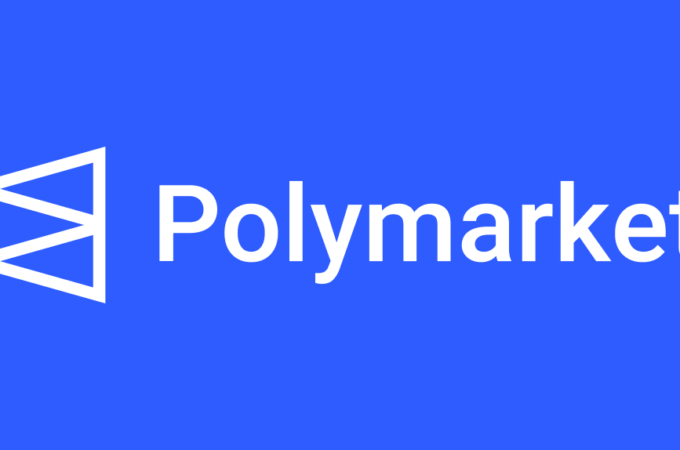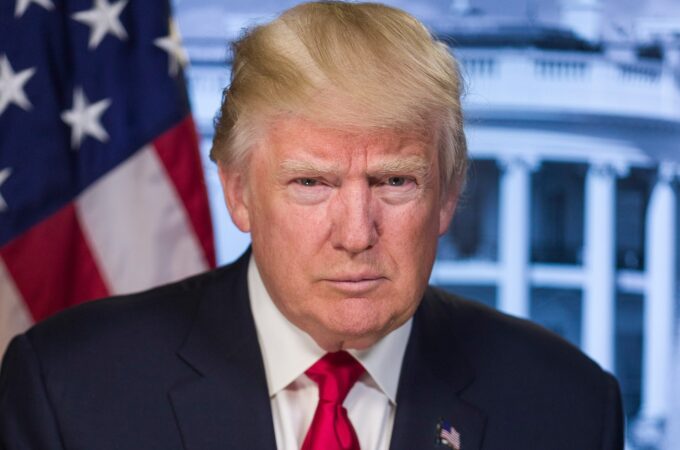The Finanser Interviews by Chris Skinner: Matthias Kröner, CEO, Fidor Bank
The Finanser: Matthias Kröner has been CEO of Fidor Bank since 2006. He is responsible for investor relations, corporate communications, strategic development and communities. Fidor is an internet bank, its primary account combines elements of a traditional bank account with internet payments and innovative banking services. Fidor was the first bank to integrate Ripple’s payment protocol, allowing its customers to instantly send money in any currency in any amount.
How is Fidor bank doing?
We launched the bank just over five years ago and, looking back, it really has been quite challenging but also very exciting. It is amazing what you can create within the financial services industry in the past few years with technology, and that fascinates and motivates me extremely.
Regarding 2014, I think we have had a really tremendous year over the last year. A really positive outcome with a steep increase in our customers and our user base. All of our KPIs are moving North, and are proof that customer centric banking is something that people need and want. In comparison to “normal digital concepts” we may have grown faster, but we did not and could not as we are a bank that is restricted to the [MK1] regulatory capital requirements that are needed to support such growth. In a nutshell, one can say that we are forced to grow profitably and you can only do that as long as you have the capital. That of course is not always easy, but in a world of double-digit-valued-powerpoint-concepts, this is a well appreciated alternative.
The next steps involve further overseas growth. We announced a while back that we will be a borderless banking partner, simply because we live in a more and more globalized society and by the nature of the web, in a borderless environment.
On the other side, it is not a matter of where you locate a company, it’s a matter of where you scale it. We have to have a continuous and close look to “meta developments” that are happening and simply cannot ignore those. Those are political developments, as in the Ukraine crisis; and economical developments, as in the ongoing European crisis; and social developments, as in the adoption and willingness of people to take on board digital based innovations.
Now we walk the talk and execute our first steps. We opened a public Beta in the UK and we are preparing our launch in the US.
My daily life is already very international. Just take yesterday as an example. In the morning we had a meeting with our MDs for Germany, UK and the US, dealing with the future developments of our customer centric offers. Then, around lunchtime, we had a discussion with potential partners talking about the Eastern European distribution of the Fidor operating system. In the afternoon, we had an honorable guest from the Middle East, discussing several options with us, and at night I was coordinating my next trip to Singapore and New York.
In a recent article I saw that Fidor finds it hard to get a payment-partner in the UK. Is that truly the case?
Well, Chris, I am happy you are asking me, because in particular the headline to the online version of that article was absolutely giving a wrong connotation to the real development. But yes, one has to admit, that onboarding to local UK payment-rails is not an easy task, even for a fully EU-licensed and regulated bank, but we have great partners we talk to and I am extremely confident that we will have a solution in the time we planned it.
On the other side, that particular headline caused a very positive reaction, in that we had a series of organisations and people come back to us, asking whether that article is correct and offering their support to us. That was outstanding and is another reason why I love the internet.
What about your launch in Russia, Matthias? I guess, in retrospect, that was bad timing?
Well yes, obviously that is one of those meta-developments with the issues in the Ukraine that, had we known, we might have planned it in another sequence and priority.
Being optimistic though I, first and foremost, still regard it to be a success because, technically, we did make a connection within nine months from our Fidor operating system to the local core banking of our partner, which is simply great.
Second in the light of this crisis and with all of the sanctions, we had a meeting in Q1 about how to move on and, despite the impression that everything is collapsing in Russia, we are still optimistic to find ways of how to go to market and leverage on the technological development.
One has to see that, in this case, we do not talk about the risk of a brick and mortar banking approach. We talk about the go to market of a digital approach and this enables us to have a very flexible approach. Whether that will happen with Fidor brand or not is open, nevertheless it will be Fidor technology.
And I find it interesting that you are coming into the UK direct and the US through a bank partnership. I guess the model of Fidor is evolving from one that is being a true bank to maybe a software house or am I mistaken?
Well, in our eyes it is extremely necessary to be a software-house if you want to work successfully as a bank within the next five years or, the other way round, a bank that is not a fin-tech company will face tough times. So, in our interpretation, there is no difference.
Talking about technology, we have Fidor TecS, our software house. This, I can say, is one huge differentiator as we eat our own dog food. This means that Fidor bank´s customer centric offer can be seen as the showcase of what you can do with the Fidor operating system.
Coming back to our UK and European approach, as you know we have a German banking license, which is passportable to the rest of the EU. This German banking license is a “full service banking license”. This means that we can take deposits, grant loans, execute payments and much more, anywhere in Europe. Europe is therefore our home turf, in relation to the banking license and to the technological issues. What we want to do, we can do on our own, and no partner is needed. Step by step we will onboard European customers and service them out of our Berlin based customer experience company.
In the US and in all other regions, the situation is different because we have no banking license there. As a consequence, we have to think about whether to apply for a banking license in a specific region we are targeting, or to team up with somebody that already has a banking license. For time to market reasons number two is definitely the better option, not only in the US but in other parts of the world. So we are particularly happy that we have found an entrepreneurial US banking partner with whom we can execute our vision in a mutual understanding and culture.
Why the US market after Europe?
Because we’ve been asked to come to the US. There have been a number of different parties approaching us, making us think about a go to market in the US. You do not imagine how supportive social media is in this. That was one motivation. The other one is pretty easy as, once you show up in the UK, Americans can read your website. In fact, at that point, if somebody likes what we do, there is a huge danger to be copied instantly. That’s one of the brutal developments of the network and so this needs to be anticipated and you proactively have to react on such a potential but likely development.
Is the US banking partner public yet or is that going to be launched and named at the day you open?
We will not disclose our set up at this stage of development for competitive reasons. All I can say is, that we carefully prepare our go to market and take all the time that is needed.
You claim to bank anything the customer sees of value from World of Warcraft Gold to bitcoins. How is that thinking evolving?
Well, to be precise: We claim to be open – in a cultural and technical way – for any digital asset category. Those could be the ones mentioned or any other form of digital asset. That means we have the objective to handle and integrate assets that customers regard to be of digital “purchasing-value” or, in other words, a very general description of a currency. But in our eyes this could be more than a traditional currency, such as the Euro. That is our difference to regular and normal banks. In our mind, even airmiles could be an asset class. Data itself is an asset class. Points, coins or whatever is existing in our digital environment can be an asset class, and whatever is accepted to acquire a service or a good is one too. At the end of the day, this is a very philosophical question which we discuss actively with our community. In that discussion, we also had a comment whether “time” could be a currency and how a banking account could handle that. All that is super exciting and extremely interesting and leads us into blockchain related issues, such as Ripple.
Besides those future-oriented conceptual discussions, we already today have created a multi-asset current account. For example, the Fidor Smart Account offers the ability to trade, send and store precious metals and foreign currencies.
You briefly mentioned Ripple and blockchain. Are those integral to the backbone of what Fidor offers or are they experiments you are playing with?
It’s definitely too early to integrate a blockchain technology into the core of our operating systems, but I am forcing discussions within Fidor to think how a blockchain-technology could affect us and what our position is in that upcoming development. This includes a deep look at the risks involved, as well as the opportunities of such a development that is still is in its infancy,
I always use your Facebook Likes story in my presentations, as it’s such a great story about how to build conversation and relevance at low cost. The figures I’ve been using is that you spend about €100,000 on marketing and on-board a full customer with KYC for around €16.7, which are amazing figures. Is that holding true?
Without sharing too many company secrets, I will not disagree on the figure regarding the cost per new retail customer. The figure for German SME customers is slightly higher.
Regarding the €100,000, we have to differentiate that a little in that, talking about brand-related communications, I could say the cost is even zero.
Wow -so how do people find Fidor through Facebook? Or are they finding you through the news and word-of-mouth recommendation?
It is a mix. I think it’s a mix of word of mouth and social media, blogs, PR and affiliation, embedded in an authentically open concept, and lived by people who stand for what they are doing and what they are offering to their customers.
Are customers switching their main accounts across to Fidor?
Oh absolutely, increasingly. We did a survey most recently in January asking this question. 40% said that they were using us as their primary banking association, which I find an extremely impressive figure.
One of the banks I deal with said Fidor is only building customers very slowly, compared to competing with an incumbent with millions of customers. I guess you would have a comment about that?
Yes, I am aware of that point. Well, as said in the beginning, it is a little bit of an ambivalent situation: As an entrepreneurial concept we are forced to grow and we believe in growth as one part of our value-creation. As a regulated entity, we are well advanced to fulfill our capital adequacy ratios. In the combination of those two points, we are growing profitably and generate an impressive customer life time value.
To improve that situation we are currently analyzing the market and evaluating our options to increase our regulatory capital with exactly that objective: to fuel and increase our growth.
One of the really intriguing things is that we talk a lot about millennials and the young generation being the natural focus for a digital bank like Fidor, but some say they’re not actually the ones that we should focus upon, as they are not financially confident or have not had a mortgage or a job before. The people that are more mature and financially confident may be in their 30s than their 20s are the natural digital customer. What demographics do you find as a customer you are appealing to?
It’s absolutely proving this thesis. Around 60% of our customers are 30-50 year-olds but, if I would make up the range from 40 to 60 year olds, it would still be above 50% of the customer base. This is totally proving this thesis. Nevertheless we do differentiate through social media channels and the customers who come through those channels. One example is that we know that, for example, Facebook users are 10 years younger than, for instance, our YouTube audiences..
So looking to the future and the long-term vision of Fidor, do you see the bank growing into a universal global bank?
As I said in the beginning, we think that a web based concept is a cross-border concept. We live in a digital society which is doing business not only in a regional context, but having friends all over the planet and going on holidays across all continents and so on. And we have to understand, that the place of origin of a concept is not necessarily the place of scale. This does not mean that we would leave Germany. That is not what I am saying. I am saying that, out of a risk-management perspective, we have to operate in different markets, creating a portfolio which allows us to grow as efficiently as possible.
In the meantime I hear you are also launching a cryptocurrency bank?
Well, that’s a little too much you have heard there. The fact is that we have discussed that vision with selected market participants by running a workshop in Berlin in December 2014. That was an extremely interesting and intense event. We had 250 applications for the workshop. We invited 30 market participants and 40 came from all over the planet.
Our wish was that somebody will step up and say that he or she is taking the lead for such a project, but that did not happen. On the other side we have to focus on our geographical expansion, so the vision of a dedicated crypto currency bank has to wait a little, simply because we need to be focused.





